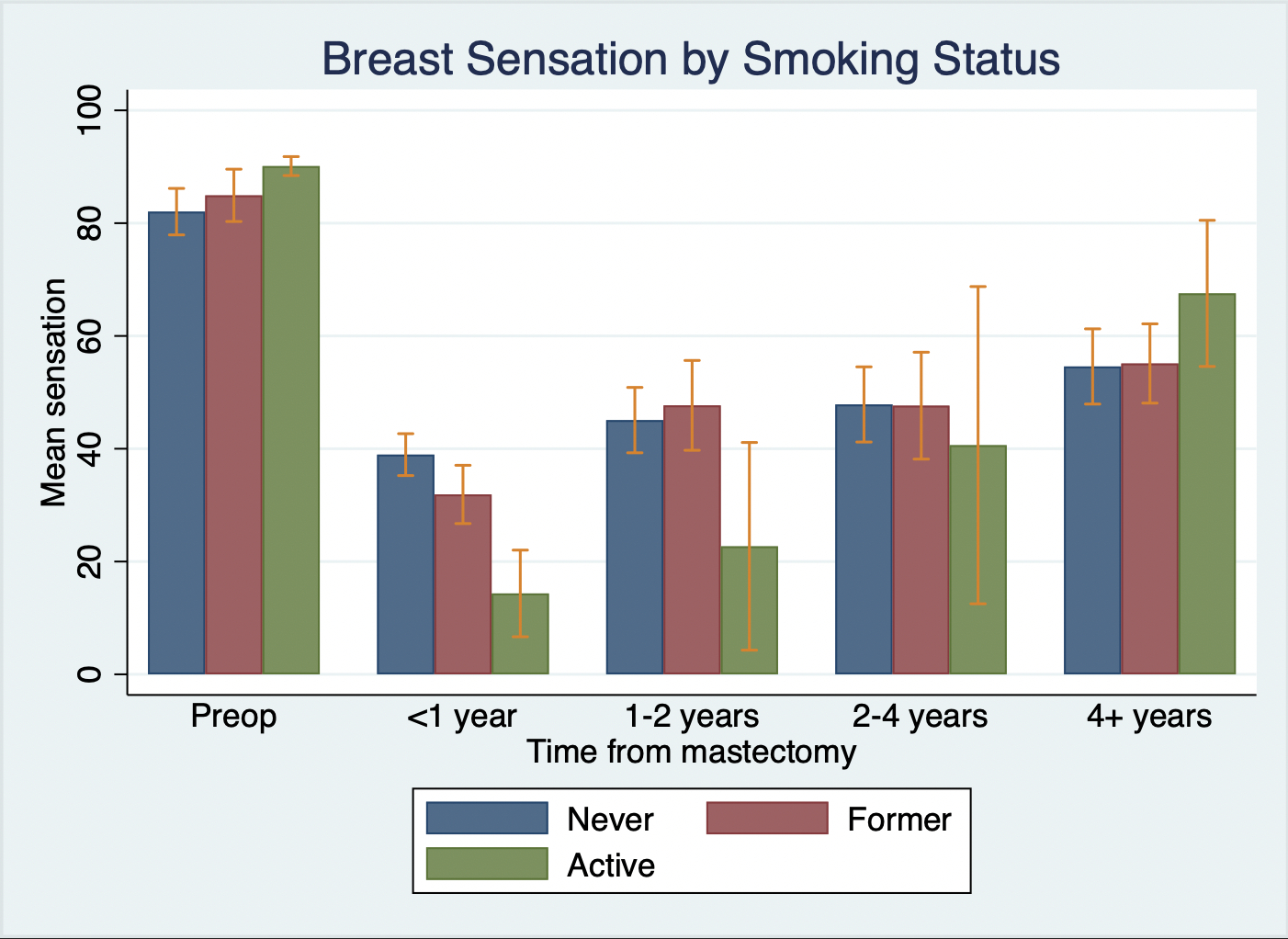Feeling Sensational: Exploring the Impact of Comorbidities on Sensory Return in DIEP Flap Reconstruction
Nancy Qin*, Grant G. Black, Yunchan Chen, Marcos Lu Wang, David Otterburn
Weill Cornell Medical College, New York, NY
In recent years, there has been a growing emphasis on restoring breast sensation for women undergoing mastectomy and reconstruction. Currently, there is a lack of research on the impact that patient comorbidities and demographics have on neural regeneration. The goal of this study is to bridge this knowledge gap in order to better set expectations and optimize outcomes.
Women undergoing mastectomy with deep inferior epigastric perforator (DIEP) flap reconstruction were identified and followed prospectively. Neurosensory testing was conducted in nine breast regions prior to and at predetermined intervals following reconstruction, using a pressure-specified sensory device on a 0-100 point scale. Unpaired t-tests and ANOVA with pairwise Bonferroni corrections were used to compare average sensation across groups stratified by patient comorbidities using an alpha of 0.05.
131 patients were included. Measurements were stratified into <1 year, 1-2 years, 2-4 years, and 4+ years after reconstruction. Patients were grouped by comorbidities including age, hypertension, tobacco use, alcohol use, and obesity (BMI>30kg/m^2). At baseline, only the increased age (-0.32 sensation points/year, p<0.01) and the obesity (-9.24 points, p<0.02) groups had significant differences in breast sensation. At <1-year post-mastectomy, former (-9.99, p<0.01) and active (-23.2, p<0.01) tobacco use were significantly correlated with decreased breast sensation. At 1-2 years, obesity (-16.93, p<0.02) and active tobacco use (-30.1, p<0.03) were found to be significant factors. From 2 years after mastectomy onwards, none of the comorbidities significantly impacted overall sensation.
While smoking status and BMI did have an observable effect on breast sensation within the first two years following mastectomy, our findings suggest that the regenerative capabilities of breast sensory nerves are largely independent of patient comorbidities in the long run. Our findings can help set expectations and guide pre-operative patient counseling.

Back to 2023 Posters


